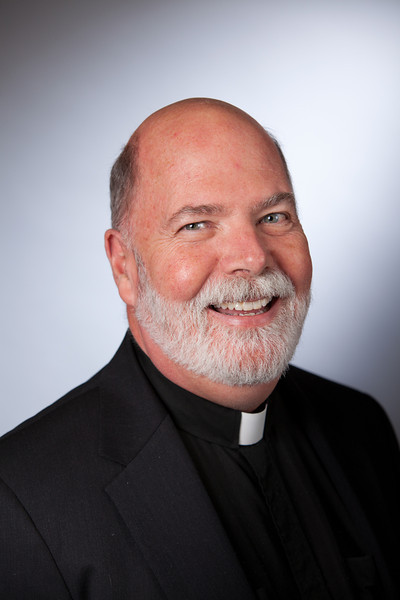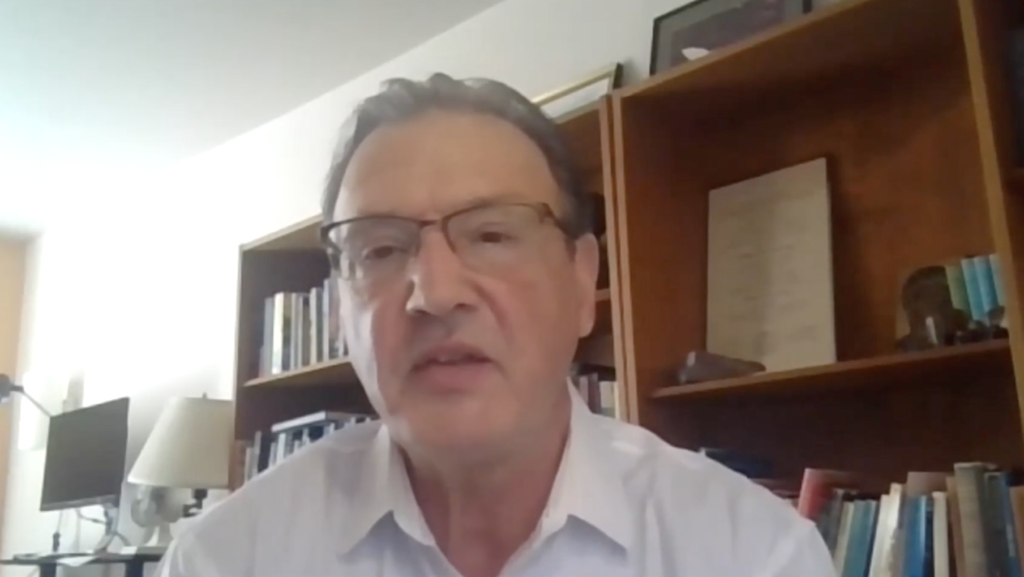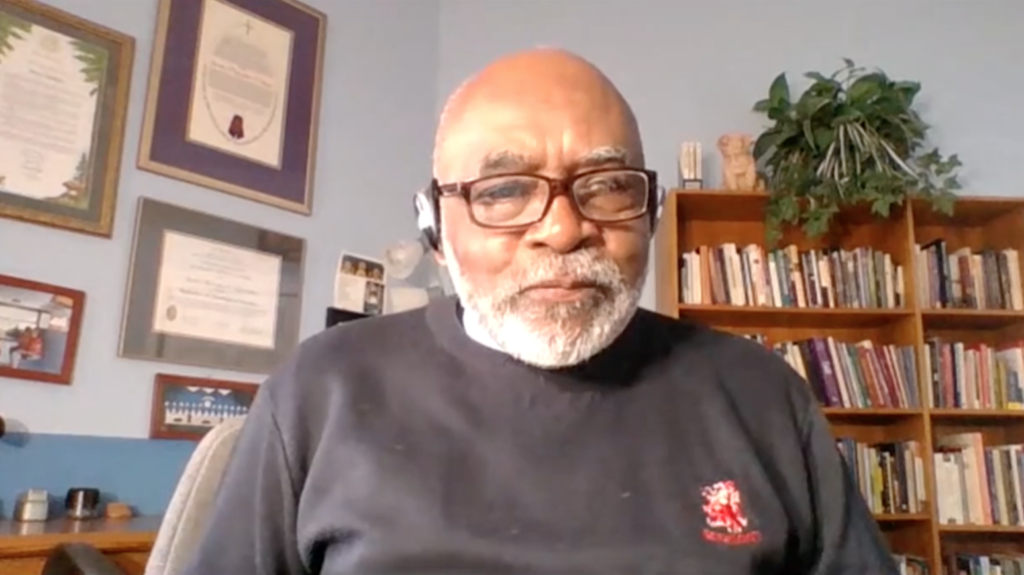Gardner: Online Worship Poses Challenges and Possibilities
By Paul Impey ’23
Like churches around the country, CDSP has made changes to worship in response to the onset of the coronavirus pandemic. Responsibility for coordinating the transition has fallen primarily to the Rev. Dr. Randal Gardner, director of chapel. As 2020 drew to a close, Gardner reflected on both the challenges and opportunities of the new formats for the community’s common prayer.
Gardner recalled that the early days of the pandemic were a time of trying out asynchronous formats, especially since students and faculty alike were busy adjusting to the community’s necessary new lifestyle. Early CDSP experiments included written meditations; a video homily from the Very Rev. Mark Richardson, PhD, president and dean; and a standalone recorded Good Friday service.
Summer’s arrival offered a chance to regroup and plan more comprehensively for fall semester. In consultation with Richardson, a group comprising Gardner; the Rev. Ruth Meyers, dean of academic affairs; the Rev. Andrew Hybl, dean of students; and Dr. Jamie Apgar, chapel musician gathered to explore the possibilities.

Initially they considered holding in-person services in outdoor or larger indoor spaces in Berkeley. When safety concerns ruled out this option, the group settled on two Zoom-based online services per week for the entire CDSP community, in conjunction with self-organized worship in formation groups.
Of course, the format isn’t perfect.
“We still fall short of the experience of singing a great hymn together,” Gardner said. As many communities have discovered, group hymn-singing isn’t possible over video conferencing. Instead, Apgar sings and accompanies himself on piano, with participants joining in with their microphones muted.
Gardner said other challenges were not quite so predictable.
“I thought recruiting preachers would be easier than usual, because they don’t have to travel. They don’t have to spend time away from their ministry contexts.” In retrospect, he said, it makes sense that it has been hard to find participants willing to take on something extra. “Everybody’s coping right now because we’re in crisis. Potential preachers have their own difficulties during these trying times, and everyone’s bandwidth is limited.”
In spite of these challenges, the new worship format has revealed opportunities.
“I think the fact that we’re in a digital realm opens up possibilities for multimedia in ways that are quite exciting,” Gardner said. For example, multiple homilists have prepared multimedia presentations to share in lieu of sermons. Others have invited worshipers to reflect together in small breakout groups after hearing the message.


The Rev. Dr. W. Mark Richardson, PhD, dean and president, engages in conversation with the Rev. Lewis “Sitting Panther” Powell as part of the seminary online worship December 2.
The online format also enables people to join CDSP worship who might not otherwise be able to participate, including low-residence students, friends of CDSP, and the small number of guest preachers who have accepted the invitation.
“Bishop Susan Brown Snook was able to join us without having to leave her diocese. The schedule she’s keeping would have made that impossible otherwise. That was a great experience for us.”
Gardner said these pandemic lessons will have a lasting impact for seminary worship and beyond.

“We have experienced offering a worship modality we always said we needed to learn. Now we’ve done it, and we’ll never go back,” he said. He noted the possibilities of online worship for reaching those unable or unwilling to attend a service in person on Sunday mornings: people who work, people confined to nursing homes, and even people in prison.
“There’s also a community of people out there who aren’t going to come through the doors of a church but will sit down for half an hour at home and listen to a sermon, music, or prayers,” he said.
These experiences have caused Gardner to reconsider his theology of the Holy Spirit.
“I’ve been dedicated my entire life to the notion that the Holy Spirit is connected to the body,” he explained. “We needed to be in the same room. Everything about our sacraments is physical. It’s eating bread, touching hands, rubbing oil, taking each other’s hands in marriage. Yet what I’ve learned from our online program and from our online formation groups is that there is something of spiritual energy that is happening even over Zoom.”
Gardner believes this energy can guide and nourish the Church and CDSP well into the future.

